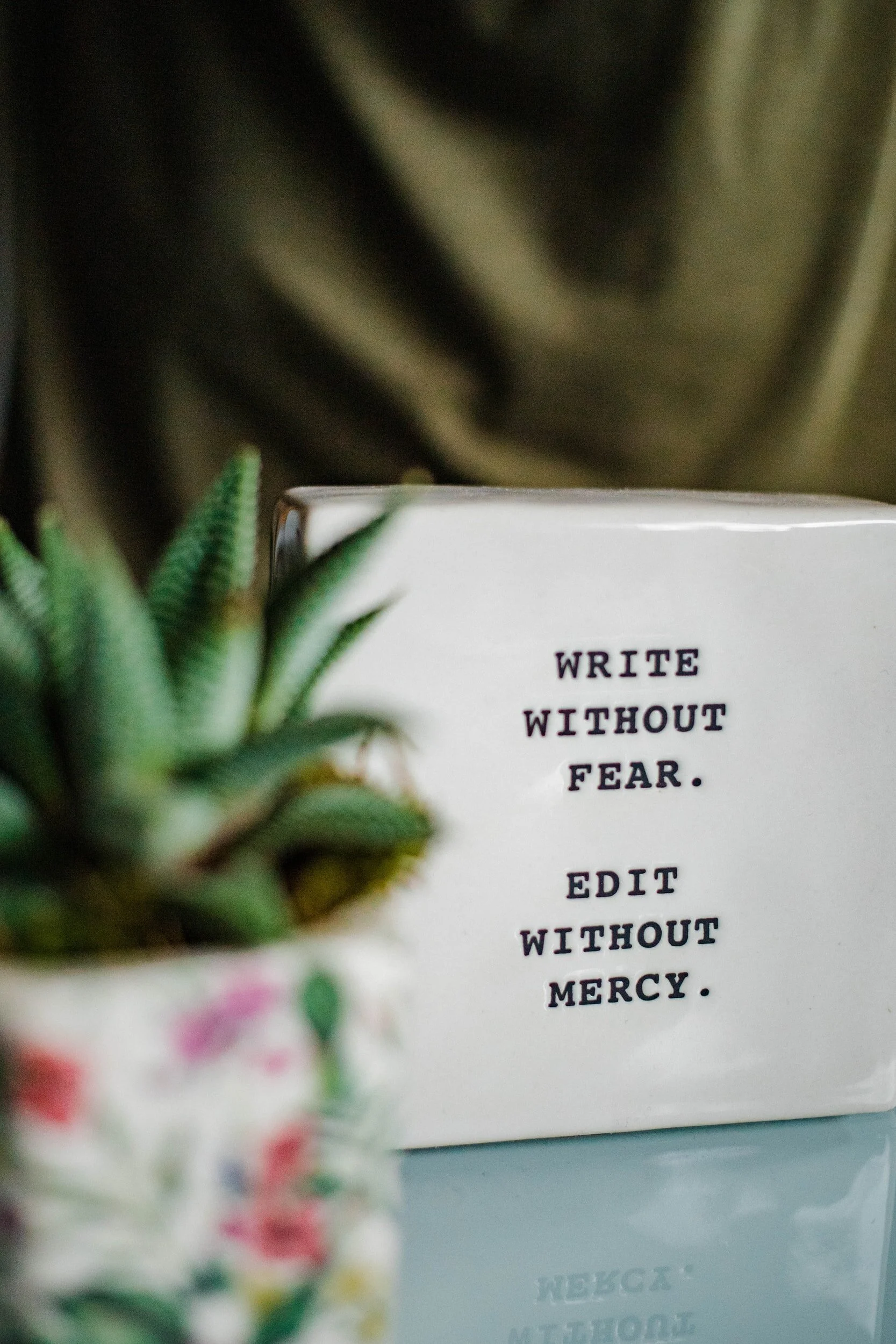How a Developmental Editor Can Get Your Book Back on Track
Photo by @oddityandgrace at Unsplash
The idea was crystal clear for years. You talked about your book idea at parties and scribbled thoughts down in a notebook for later. Writing it would be easy.
That is, until you sit down to write. You’re not sure how to put the chapters together, or if your story even makes sense anymore. Then you find some old notes and can’t figure out how to put them into the book. Nothing seems to fit like you thought it would.
So, what do you do now?
The one thing you really don’t want to do: Ask for help.
No matter how many visions you’ve had of being all alone as you write this epic book, you never really write by yourself. Well, at least you shouldn’t. That’s how you ended up here, right?
You need someone who can see the big picture, pull out the story that’ll grab readers and can manage the pieces for you. There are some things you don’t have to figure out on your own. Here’s how a developmental editor can get your book back on track.
Find What’s Working
Showing your work to someone else is scary, especially when you’re not super excited about what you’ve done so far. When you work with a developmental editor, they’re not judging the work as a completed manuscript. Their work lies in developing materials. Messy is the game!
The first thing a good editor will do is find what parts of your book are working. They’ll pinpoint spots of energy and cohesiveness. It’s not about making your story what they want it to be. Developmental editors will help you write the story you want to tell, even if you can’t quite see it yet.
Every feedback session or editorial letter should start with the positive. You want someone who can help you, but you also need someone who motivates you to make the suggested revisions.
Sees the Missing Pieces of Your Story
It doesn’t matter how long you’ve been writing your book. You’re already too close to see the holes. A key way a developmental editor can get your book back on track is to find the missing pieces of your story.
Whether you’re writing a cookbook, food memoir or novel, there are details you’re leaving out from the very beginning. You’ll feel like you’re already telling people too much. Chances are that you’re not telling them enough about the things that matter.
That’s where your editor comes in with a bird’s-eye view of the story so far. They’re not in your head, so they’ll ask the questions the reader will also be asking. Most writers don’t want to reveal too much to their readers, so they’ll withhold information to “make it more intriguing”. Unless you’re writing a mystery, you don’t want to keep things from your audience.
Your developmental editor can help you balance the right amount of information to give and keep from your readers, and it starts with finding the missing pieces of your story.
Creating Structure for Your Story
Structure is one of the hardest pieces of writing a book. The way you build your story can make or break it. If you’re resistant to creating a foundation for your story, don’t be. It’ll make the writing process that much easier.
Most writing projects go awry, it’s normally because there isn’t a structure aka outline. Now before you throw this post away at the mention of an outline, listen for a second.
If you’re planning a cross-country road trip, you probably wouldn’t wing it. You know the general route and some highlights along the way. Sure you may take some detours, but you’ll find your way back to the highway you started on.
Outlines are the same. They create a road map for your story, so you don’t have to think about where to go next. It’s not about restricting your choices as a writer. Structure allows you to be more creative because you have fewer choices. It can be hard to add those restraints on your story, so that’s where a developmental editor comes in.
Taking the Guesswork Out of Revisions
If you’ve ever taken a writing workshop, you know the feeling of getting too much feedback. It leaves you confused about what to revise and what to totally ignore — except the notes from that one person who loved tearing your work apart. Their notes are already in the garbage.
But seriously, you can’t make sincere progress on your book if you’re swimming in notes from multiple directions. A developmental editor can get your book back on track by being a steady voice of discernment. If your editor is assigning you regular deadlines, you’ll be given clear instructions on what revisions to address. They’re in it for the long haul, so they’ll focus on the most important feedback first and know that the other notes will be addressed in time.
Finding the Right Developmental Editor for You
Like most creative work, finding the right partner comes down to chemistry and results. You may really like an editor, but you also have to trust that they’ll show you the way through the jungle that is book writing. It also takes a commitment from you to be ready for whatever comes your way in the process.
If you’re ready to experience how a developmental editor can get your book back on track, grab your spot on my coaching waitlist here. Once the doors open, you’ll book a free 30 minute call, so we can talk through what you have so far, where your biggest roadblocks are and see if we’re a good fit. Worst case scenario is you get expert feedback on a handful of pages. Best case scenario? You found your new book writing partner.
